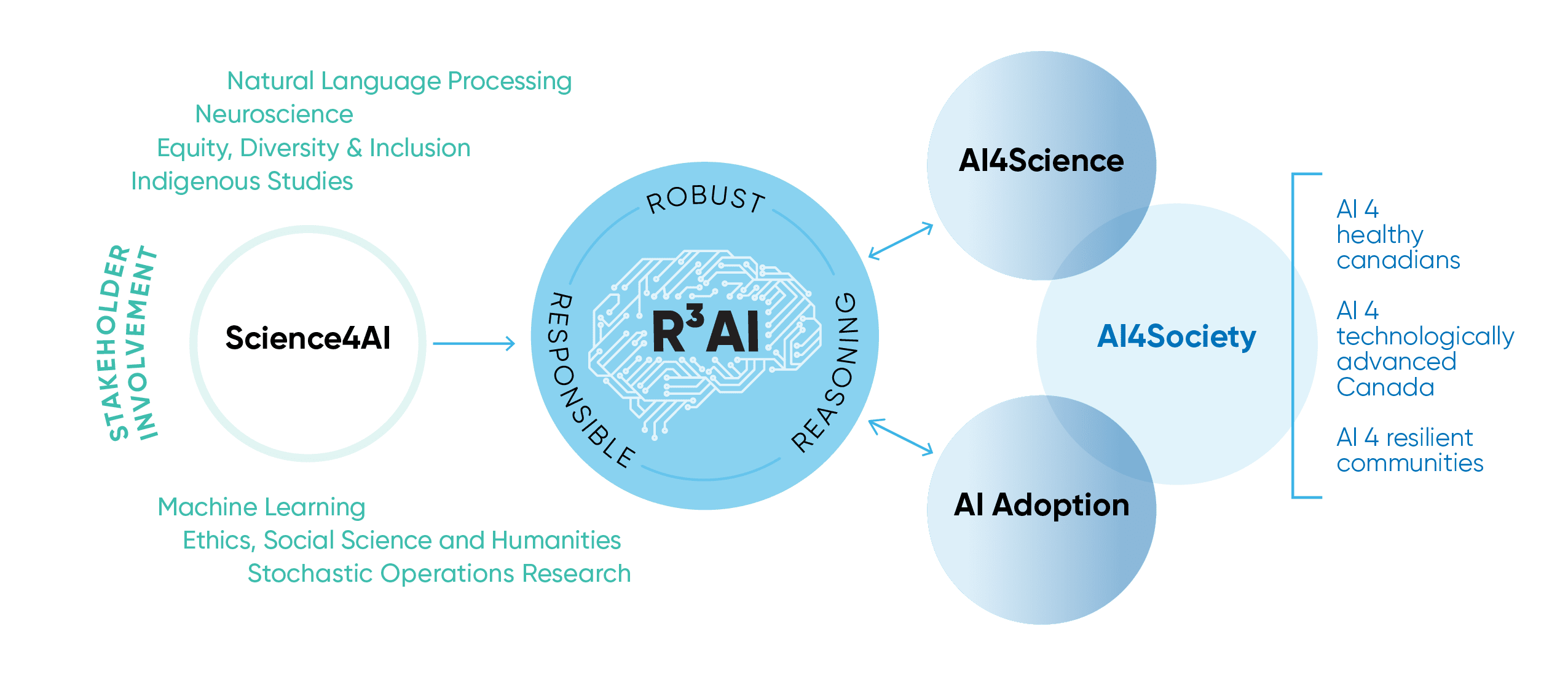News
September 7, 2022
This is the vision of the future embraced by IVADO and its community, which unites hundreds of artificial intelligence (AI) researchers, organizations of all sizes and technological maturity levels, and institutional partners actively involved in the digital transformation of Québec and the rest of Canada.
To help make that vision a reality, this letter of intent was submitted to the latest Canada First Excellence Fund competition on August 31, 2022, by Université de Montréal, with support from HEC Montréal, Polytechnique Montréal, Université Laval and McGill University as institutional partners. IVADO is privileged to be the chief architect of this extensive project that aims to change the AI paradigm so that society can fully benefit from the vast potential of these technologies.
We can already congratulate ourselves on the increase in capacity of our Québec AI ecosystem observed since IVADO began operations in 2016. In recent years, research projects involving academics and industry players have multiplied, the amount of training available in AI has increased significantly, a healthy influx of talents and investments from abroad is now contributing to our growth—in short, the digital transition is well under way.
These advances have also given us the opportunity to better analyze the barriers to widespread adoption of AI. To remove them, we intend to use science in the service of AI. Indeed, although AI systems are growing in sophistication, they are nonetheless facing difficulties in adapting to an unknown environment. By standardizing conscious processing functions, however, we will arrive at an AI that will integrate aspects of causality and will be far more stable and robust.
At the same time, we are working to implement greater proximity between AI, neuroscience and the humanities and social sciences, so as to bring AI and human intelligence closer together. AI will thus become increasingly competent, better explained, reasoning, and thus more accepted, even as it helps improve our understanding of how the human brain functions.
Lastly, for these technological advances to be genuinely fruitful, this new AI must inspire confidence from an ethical, and not merely technical, standpoint. To that end, we will bring the science of responsible innovation to bear on systems design. And we will carry out all this work with our customary attention to questions of equity, diversity and inclusion, and in close collaboration with members of Indigenous communities and under-represented groups. We will ensure that the innovations we deliver remain as free as possible from bias of any kind, to achieve responsible AI that can be harnessed to serve all members of society.

In turn, we will place this AI of tomorrow at the service of science, to concentrate on pressing challenges such as accelerating discovery of new compounds and pharmaceuticals, development of learning health systems, and solutions to environmental challenges—all while continuing to ensure that new knowledge in AI will foster a better global understanding of the world we live in.